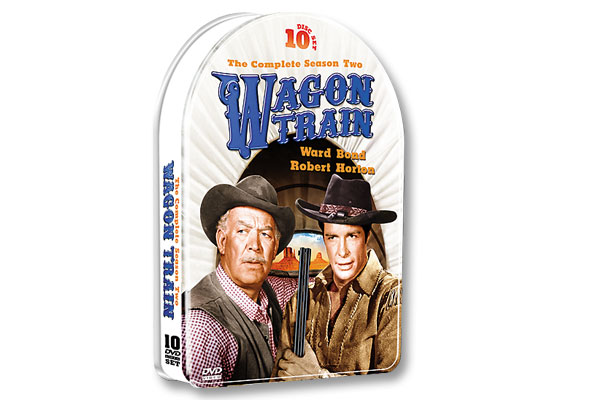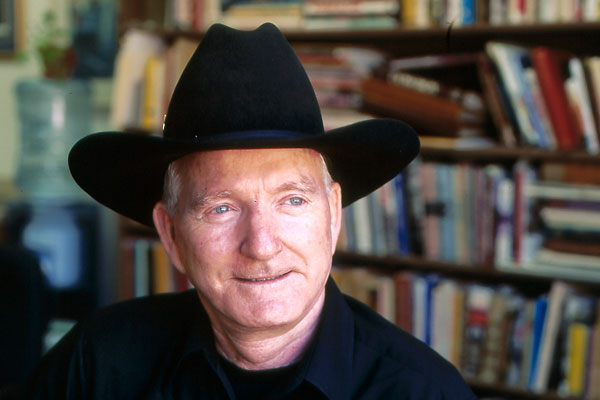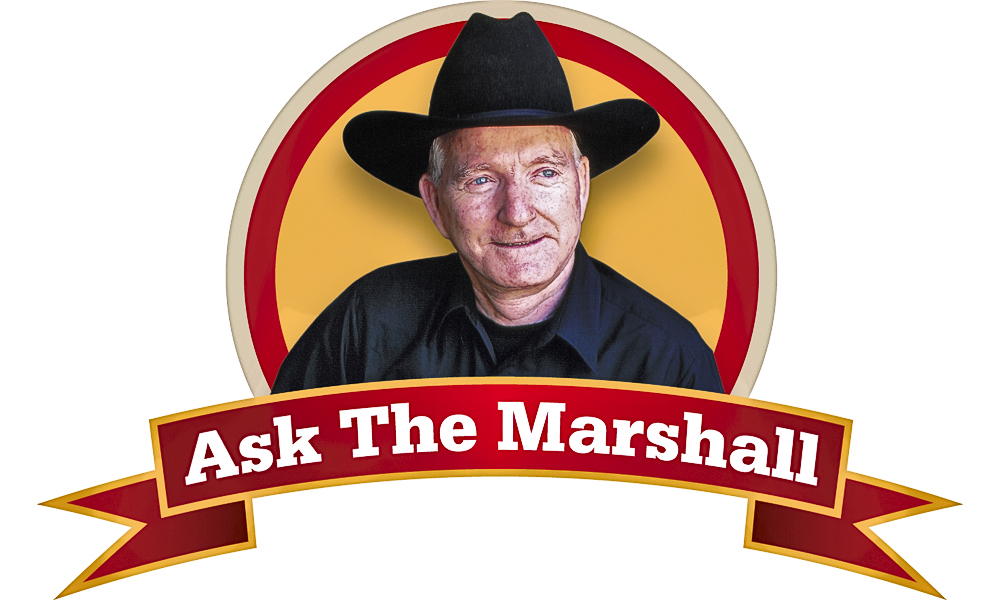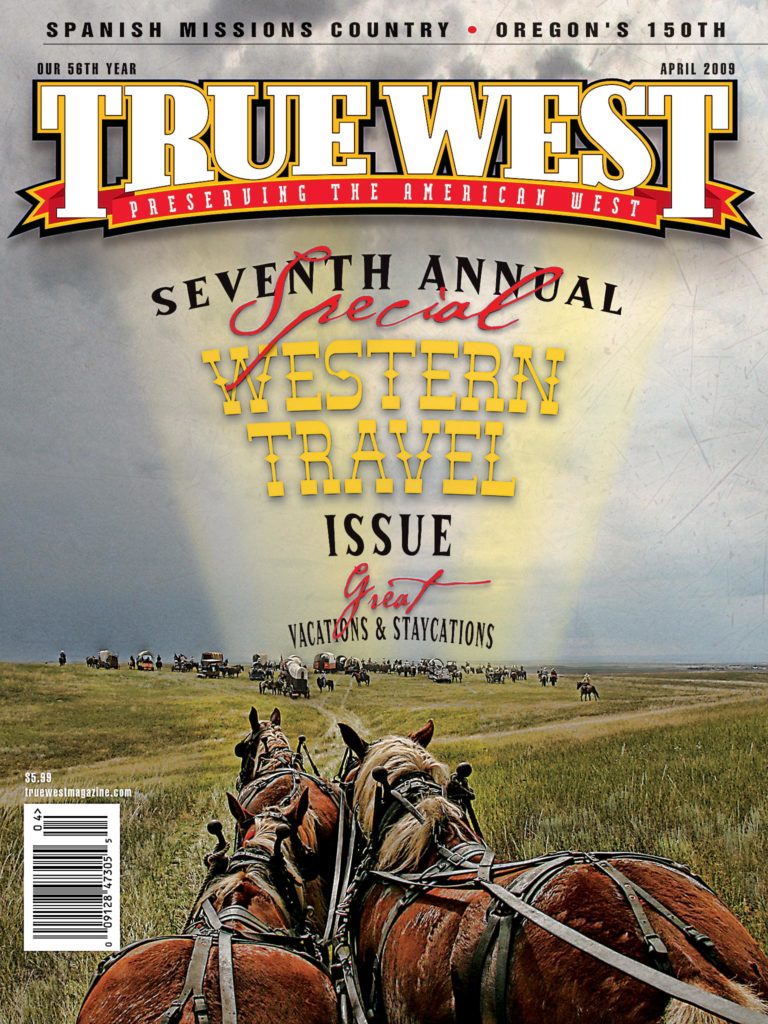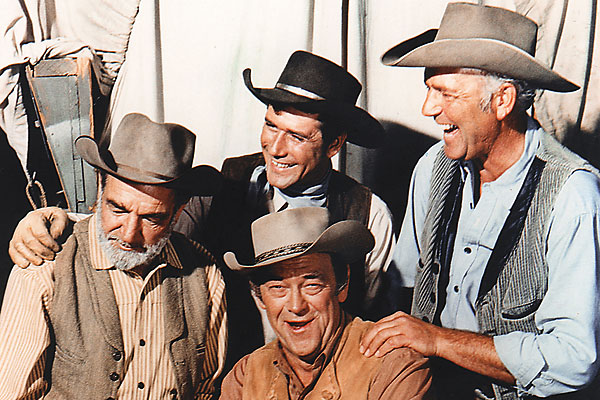
Robert Fuller was the perfect TV cowboy. He loved to ride, loved acting, he had the looks and, as the child of professional dancers, he had the grace to make it all look good.
More important, being in Westerns was all Fuller wanted to do, once he had made the choice to become an actor in the early 1950’s. He couldn’t have picked a better time, because Westerns were definitely the flavor of the day.
When Fuller was offered one of the leads in a brand-new series called Laramie (1959), he went for it, full throttle, and never looked back. Four years later, when Laramie came to an end, Fuller was immediately pulled aboard the long-running series Wagon Train, filling the void caused by Robert Horton’s departure.
Fuller traded his chaps for a surgical gown when he went to work in what would be his final TV series, Emergency! Producer Jack Webb went to some considerable effort to convince Fuller that he didn’t have to be on a horse to have a good time. Webb was on the money, and Emergency! lasted seven years, from 1972-79, which meant that Fuller had a solid 20 years of regular TV work.
Fuller continued to work on TV and in movies; he even played the descendent of his Laramie character, Jess Harper, in several episodes of Walker, Texas Ranger.
A few years ago, Fuller decided that Los Angeles had lost its charm, and that his time would be better spent fishing and riding horses. He bought a place just north of Dallas, Texas, where he lives with his wife, the actress Jennifer Savidge.
He does occasionally step away from his bass boat long enough to greet fans at Western festivals around the country. Last year, he was inducted into the Hall of Great Western Performers at the National Cowboy & Western Heritage Museum in Oklahoma City, alongside one of his boyhood idols, Johnny Mack Brown.
TW: What convinced you to say goodbye to Los Angeles?
RF: I really like to fish. And I honestly got tired of Hollywood. I’ve done everything I could possibly do there, and I wanted to enjoy myself for a while. So Jennifer and I started looking for some places. In the meantime, my good pal Alex Cord, well, he wanted to get out of Hollywood too, and he bought a ranch in a little place called Valley View, which is about eight miles from here. We came down to visit him a couple of times, and we fell in love with this area, so we started looking for property. Dadgummit, we found a gorgeous piece of property out in the country with two bass ponds on it, which knocked me out to start with. I’ve always wanted a bass boat, so I finally got my bass boat, and I got these lakes and I just fish. We got some horses and miniature donkeys and dogs and cats and….
Sounds like you’re living in Michael Jackson’s house!
[Laughs] Yeah! Not quite.
No monkeys?
No, no monkeys, but monkey business! But I’m doing what I want to do. Jennifer likes to ride. She rides dadgum nearly every day. But when the weather’s good, I’m fishing.
Didn’t you have a fishing show on TV at one time?
I sure did! I had three of them throughout the years.
Two big Westerns and three fishing shows. That’s a full house.
I know, I know!
The studios have just released a 16-disc box set of Wagon Train, and the Laramie box set will be out soon.
I tell you, I’m tickled that Wagon Train and Laramie are coming out.
They should run some of those shows on the Westerns channel.
You know, everybody I know watches that Westerns channel. Alex Cord’s got a great line. I’ve asked him, I said, “When are you going to get the Westerns channel?” And he said, “I’m never gonna get it.” I asked, “Why?” He said, he goes, “Once I get it, I’ll never get anything done. I’ll be sittin’ in front of that TV, watchin’ Westerns, 24-7.”
I was surprised to find out you came from a family of professional dancers.
My mom danced in all the nightclubs on Miami Beach in the 1940’s. When she married my step-dad, she turned him into a dancer; the two of them did all kinds of stuff.
My dad [Robert Cole], of course, got in the picture business before I did and danced in every musical made in Hollywood from 1950 until he retired in the ‘80s. Did a lot of specialty numbers. He was very well-respected, worked all the time.
You were also one of the dancers in a Jane Russell number in Gentlemen Prefer Blondes. What got you interested in making Westerns?
Actually, I started getting into the Westerns mode in 1953, when I met my pal Chuck Courtney, who played Dan Reid in the Lone Ranger TV series. Chuck, he was a cowboy; he had horses down in the river bottom in North Hollywood there in the valley. We started running around together, and he wore boots and Levis and rode the horses. Pretty soon I was ridin’ horses and wearin’ boots and Levis, and learnin’ how to draw a gun and doin’ fight scenes, messin’ around like that. All of a sudden, I got drafted. And when I came back, he really forced me to take acting classes with Richard Boone.
God, I must have had 27 pairs of boots, 40 pair of Levis and 20 hats. But all we did all the time was draw guns and fight and ride around. When I got my first Western, it was a cinch to do, you know?
Sounds like you were kids playing in the backyard.
Yeah! Oh, absolutely! I loved that, are you kidding? We were playing cowboys. I grew up goin’ to those movies, watchin’ those guys. My favorite cowboys were Johnny Mack Brown, Bob Steele, Don “Red” Barry; there were so many good ones. I watched these guys. All of a sudden, I’m on the set of Laramie, and here comes Bob Steele and Don “Red” Barry, and I’m working with these guys. It was unbelievable.
Did working with these old cowboy actors mean as much or more to you than the big stars—Lash LaRue, Joel McCrea— who guested on Wagon Train?
Well, Joel was totally my biggest idol ever, and I finally got to do a movie with him, Mustang Country. We took him out of retirement to do that. When I was inducted into the museum, Johnny Mack Brown was inducted posthumously the same day I was. It was really unbelievable.
Did you hang out with those guys?
Well, with Bob Steele and Don “Red” Barry I did. They were characters. They were tough characters. First of all, they were cowboys. There’s no doubt about it. They pretty much grew up as cowboys and spent their lives on horseback like I practically did. I spent half my life on horseback, if you think about it, with all those years doin’ Westerns. You’re on horseback most of the time.
They loved to get on those horses and ride around on the set, and play with the guns and everything. They were big kids too! But they were really nice men, particularly Bob Steele, one of the big-time gentlemen of all time.
Bob Steele was close to John Wayne at the beginning of his career. I think his dad (Robert Bradbury) directed Wayne in some of his earliest pictures.
They all worked together in those days for sure. Yakima Canutt. Yakima was a good friend.
I read that you worked a lot with Hal Needham, who was a kind of later-day Yakima Canutt.
I pretty much started Hal in the business with me. I had him double every actor that I ever fought with in Laramie and Wagon Train. I had Hal come in and double that actor, because I did all my own stunts and all my own fight scenes, and Hal was really a good fight man. I used him a lot.
When you worked with older cowboy stars, did you find yourself looking up to them, feeling like a kid brother?
Absolutely. Absolutely. And they acted the same way to me. Dick Foran. I bought my first shotgun from Dick Foran, [Winchester] Model 12, 16 gauge. We used to shoot together. And he did all the mummy movies! [Laughs.] We spent a lot of time together.
Those guys were great to work with, and I couldn’t wait for them to get back on the set to work again, ‘cause we had fun together. We also drank a little bit in those days too. We’d go out to the river bottom, to the Hitchin’ Post at night, and have some good times.
Tell me about the Hitchin’ Post.
Aw, well, it’s an old cowboy joint. It was a pretty tough joint; you had to weigh in at the door. We raised a lot of hell in those days. It was cowboy time in those days. Thirty-two Westerns. You can imagine. Cowboy bars all over the place.
And there was Whiskey Row—
Whiskey Row was right off the main drag of Universal Studios. I think there were, I can’t remember how many dressing rooms, but it started with Ward Bond, Terry Wilson, Frankie McGrath, John Smith, myself and Lee Marvin. That’s six dressing rooms in a row, called Whiskey Row, and you can probably imagine why.
Lee Marvin was one of the great guys of all time. We always wound up in my dressing room after work at night, and we never got home before two in the morning. Had to be back on the set at 7:30 a.m. But hell, we were young in those days. We could do it.
You were in Korea; Marvin was wounded in the South Pacific. A lot of actors working at that time came through the service and saw action.
It gave you a sense of responsibility, the service. That’s for sure. Lee was never late for work; I was never late for work. When I have to be someplace at 10:47, I’m there at 10:47. I learned all that in the Army. Discipline is a really, really important thing. I wish my kids had been in the Army [laughs].
I loved the Army. I wouldn’t do it over again, going to Korea, but I’m sure glad it happened to me. I was a kind of a messed up kid. I was raising hell when I was 18, 19 years old.
Is that right?
Oh, yeah. My first day in the Army, I hit a corporal [laughs]. I ran up and down the company street, I don’t know for how many hours, holding an M-1 rifle over my head, saying, “I will never hit a Corporal, I will never hit a Corporal, I will never hit a Corporal,” until my arms almost fell off. Boy, you learn it quick, you can’t do
that stuff.
Why’d you hit him?
Oh, he smarted off, as he should have, you know. I was just a recruit. And I didn’t like the way he talked to me.
Was that the first and last time?
Oh no—but the next time I hit a corporal, I was one. It was no problem then.
I recently saw Gran Torino, with Clint Eastwood, where he plays a Korean War vet. The two of you had similar careers at the same time.
I loved that. He’s such a great guy. We started together in the business. He was doing Rawhide, while I was doing Laramie.
You studied acting with Richard Boone, and went to New Work to study with Sandy Meisner. How did the acting classes help you?
Well, it’s hard to say, because when I’m working now, I don’t even think about what I learned—it comes so naturally now. If I want to break it down, I can say, “Oh, I know why I did that, because that’s the way I was taught; that’s something that I learned to do to myself, to relax, or add certain nuances or whatever.” But once you’ve learned, and you do it enough—and I did a lot of stage plays—pretty soon you’re there, you know? The first play that I did in 1956 was called Tea and Sympathy, in Santa Monica. The cast was Michael Landon as the boy, myself as the roommate, Eddie “Kookie” Byrnes as the antagonist and Jack Nicholson, who had one line. Eve Miller played the woman. A great play, and look at those people. All of those actors worked.
Your friends Alex Cord and Edd Byrnes acted in Spaghetti Westerns. What was your take on those pictures?
You know, not that many people knew that it was going on. I didn’t think much about it. I knew that Clint went over to do one. When he came home, I heard all this great reaction from this thing called A Fistful of Dollars, and I called him on the phone—I heard he was back in town—and I said, “How you doin’?” And he said, “I’m still foolin’ ‘em.” I used that line myself. But that’s what we do, we fool ‘em, don’t we?


